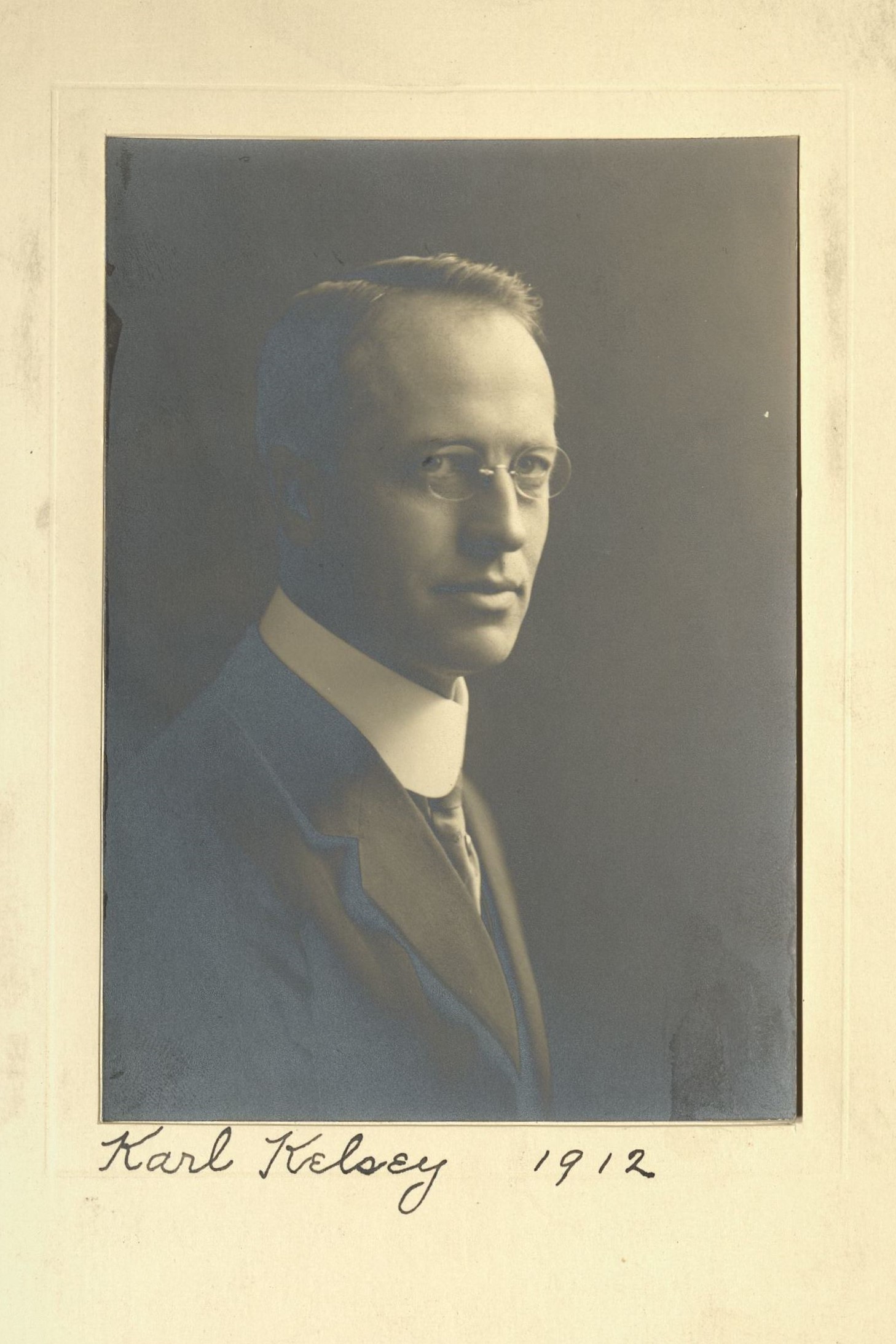Professor of Sociology
Centurion, 1912–1953
Born 2 September 1870 in Grinnell, Iowa
Died 15 October 1953 in Mendenhall, Pennsylvania
Buried Union Hill Cemetery , Kennett Square, Pennsylvania
, Kennett Square, Pennsylvania
Proposed by Samuel McCune Lindsay and Edward Thomas Devine
Elected 6 April 1912 at age forty-one
Century Memorial
Carl Kelsey was born in 1870 at Grinnell, Iowa. He graduated from Grinnell College (then called Iowa College) in 1890, studied in Europe, and subsequently completed the work for the doctorate in sociology at the University of Pennsylvania in 1903. He joined the faculty of Pennsylvania in 1903 and taught there until his retirement as professor emeritus in 1942.
During all his years of teaching in Philadelphia at the University of Pennsylvania, Kelsey lived on a small farm near the town of Mendenhall, Pennsylvania, not far from Kennett Square. He loved all plants that he could grow—trees, shrubs, flowers, and even vegetables. Practically all of his spare daylight hours were spent in gardening. Most of all, he was fond of peonies, and for years had several acres of them. He made money out of this hobby, for he was usually able to bring his plants into bloom in time to catch the Decoration Day market.
His favorite summer recreation was driving a car to California. He seemed to need an excuse for these trips and explained that he made them to see his sister who taught school in Berkeley. Actually, he simply enjoyed wandering all over the country in an automobile, always trying to find new roads and avoiding main highways whenever possible. His greatest enjoyment was to explore the worst roads in the least settled areas of the West.
Kelsey brought to the University of Pennsylvania a synthesis of New England asceticism and Midwestern meliorism. He was a resolute individualist. In politics and economics he was a conservative, but he had also been a reformer and was sometimes considered a radical. He was a critic of capitalism who had read Karl Marx intensively, but he rejected collectivism and deplored the New Deal. Among his neighbors in rural Pennsylvania he was suspected of practicing “socialism” on his excursions to the city. Among congenial urban companions he was not only a scholar but a naturalist, bridge player, and amateur billiardist of superlative skill. His anecdotes were as sharp as his paradoxes. His independence will be a lasting monument in the memories of his students and colleagues.
The citation for an honorary degree of Doctor of Letters conferred on him by the University of Pennsylvania during its bicentennial celebration in 1940 reads in part: “Vigorous teacher and administrator with rare ability in the selection and training of men, his dynamic leadership has moulded one of the University’s strongest departments, and his relation of social sciences to geography and biology is a major contribution to knowledge.”
George W. Martin
1955 Century Association Yearbook

